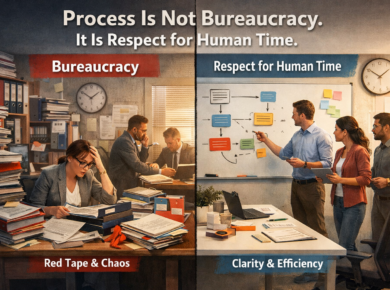The Untapped Talent Pool: Recognizing Parenthood as a Leadership Training Ground
In the fast-paced corporate world, leadership, resilience, and adaptability are highly sought-after skills. Organizations invest heavily in leadership training programs, yet they often overlook one of the most demanding and effective training grounds for these skills—parenthood. Raising children requires strategic decision-making, crisis management, emotional intelligence, and the ability to adapt to constant change. But do businesses in this world recognize the value of these skills developed through parenthood?
The Overlap Between Parenthood and Workplace leadership Skills
1. Leadership and Decision-Making
Parents are natural leaders. They guide their children through various challenges, make critical decisions daily, and instill values that shape the future. These same leadership abilities are essential in business, where making strategic choices, mentoring employees, and managing teams are key responsibilities.
2. Resilience and Crisis Management
Parenthood is filled with unexpected challenges—from sleepless nights to handling a toddler’s meltdown in a public space. Parents learn how to stay calm under pressure, pivot quickly, and make tough decisions. In the corporate world, resilience is crucial for navigating market shifts, handling workplace conflicts, and leading teams through crises.
3. Time Management and Multitasking
Juggling work, school schedules, extracurricular activities, and household responsibilities requires excellent time management skills. Parents become experts at prioritizing tasks, optimizing productivity, and ensuring efficiency—traits that are invaluable in any workplace setting.
4. Emotional Intelligence and Conflict Resolution
Understanding and managing emotions, both their own and their children’s, gives parents a high level of emotional intelligence. This ability to empathize, communicate effectively, and resolve conflicts is vital for fostering strong workplace relationships and ensuring team cohesion.
5. Adaptability and Problem-Solving
Children grow and change constantly, requiring parents to be flexible and creative in their problem-solving approaches. Businesses today operate in a dynamic environment where agility and adaptability are critical for success.
The Current Recognition in the Business Landscape
While some progressive companies recognize the value of parental experience, many businesses still fail to translate these skills into workplace qualifications. The traditional hiring process focuses on formal work experience, often leading to employment gaps being viewed as liabilities rather than opportunities for growth and development.
However, forward-thinking organizations are beginning to acknowledge the benefits of skills gained through parenting. Companies like Patagonia, Deloitte, and Google have implemented policies that support working parents, such as flexible work schedules, parental leave, and return-to-work programs.
How Businesses Can Leverage Parental leadership Skills
To bridge the gap between parenting and professional skills recognition, businesses should:
- Rethink Hiring Practices: Employers should consider leadership, resilience, and adaptability developed through parenthood as valuable assets when evaluating candidates.
- Offer Returnship Programs: These initiatives help parents re-enter the workforce, ensuring their skills are acknowledged and further developed.
- Encourage Workplace Flexibility: Providing remote work options, flexible hours, and parental support programs can help parents thrive professionally.
- Promote an Inclusive Culture: Acknowledging the skills parents bring to the table can foster a more diverse and inclusive workplace environment.
Conclusion
Parenthood is one of the most demanding leadership experiences, yet its value in the corporate world remains underappreciated. Businesses that recognize and integrate parental skills into their hiring and leadership development strategies will gain access to a highly capable and motivated workforce. By shifting the narrative and embracing the strengths of working parents, companies can foster a more dynamic, resilient, and effective workplace for all.









